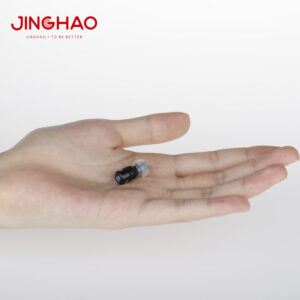 It’s no secret that, as we age, we are more likely to need to take more prescription and non-prescription medications.1 Most of us take these medications without thinking about whether it will affect our hearing health — and we should. Some of the medications we take can be ototoxic or have a toxic effect on the ear or its nerve supply.
It’s no secret that, as we age, we are more likely to need to take more prescription and non-prescription medications.1 Most of us take these medications without thinking about whether it will affect our hearing health — and we should. Some of the medications we take can be ototoxic or have a toxic effect on the ear or its nerve supply.
Ototoxic medications have the potential to cause hearing loss, tinnitus and/or dizziness and vertigo. There are more than 200 known ototoxic medications on the market today.2 Many ototoxic medicines treat cancer, heart disease, and serious infections.
Ototoxic Medications and Tinnitus
Tinnitus, or ringing, buzzing, or a pulsing sensation in the ears, is usually the first sign of ototoxicity. As time passes, ongoing use of ototoxic medications could also lead to you developing hearing loss. People often do not notice the hearing loss coming on until they begin to have trouble understanding speech or hearing higher pitches, such as a woman or child’s voice. It’s important to catch the signs of ototoxicity early, so you can reduce the damage done to your hearing. Knowing what drugs are ototoxic is helpful.
- Aspirin, when large doses (8 to 12 pills a day) are taken. (Baby Aspirin is not included.)
- Nonsteroidal anti-inflammatory drugs (NSAIDs), such as ibuprofen and naproxen.
- Antibiotics from the aminoglycosides sub-class of drugs like gentamicin, streptomycin, and neomycin.
- Loop diuretics used to treat high blood pressure and heart failure, such as furosemide (Lasix) or bumetanide.
- Platinum-based medicines that are used to treat cancer, such as cyclophosphamide, cisplatin, and bleomycin.
Treatment
In some cases, your doctor can help relieve tinnitus caused by ototoxic medications by switching you to a different medication. You should talk to your doctor about any over the counter medications that you suspect are causing tinnitus to determine if you should stop taking them. In other cases, there is no way to relieve the tinnitus sounds, but there are steps you can take to make it less irritating.
Certain treatments may “calm” the tinnitus sound. Tinnitus masking devices in today’s hearing aids produce a continuous, low-level white noise that suppresses tinnitus symptoms. Concept by Iowa Hearing Aid Centers offers the new Concept Connect that includes a built-in tinnitus therapy sound generator that uses calming sounds, such as flowing water, to relieve tinnitus. Solutions are available for patients with or without a hearing loss.
Resources:
1 http://www.merckmanuals.com/home/older-people%E2%80%99s-health-issues/aging-and-drugs/aging-and-drugs
2 http://www.asha.org/public/hearing/Ototoxic-Medications/
Link:Hearing Loss Risk Factors: Ototoxicity and Tinnitus
REF: Bluetooth Hearing Aids, Hearing amplifier, BTE Hearing AidsThe article comes from the Internet. If there is any infringement, please contact [email protected] to delete it.




